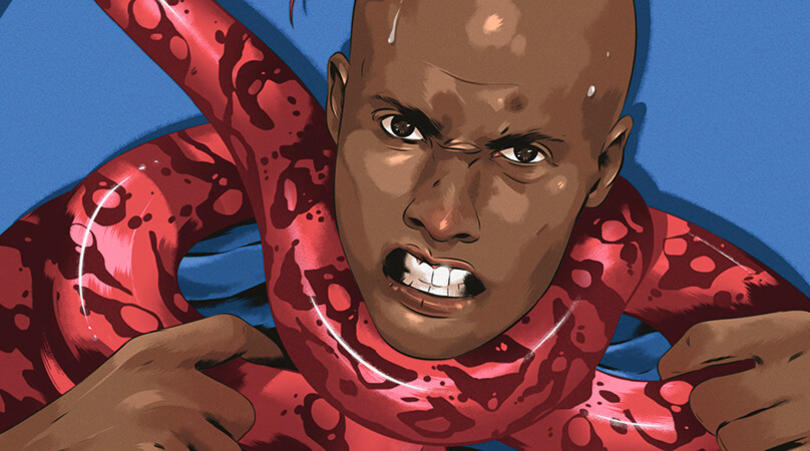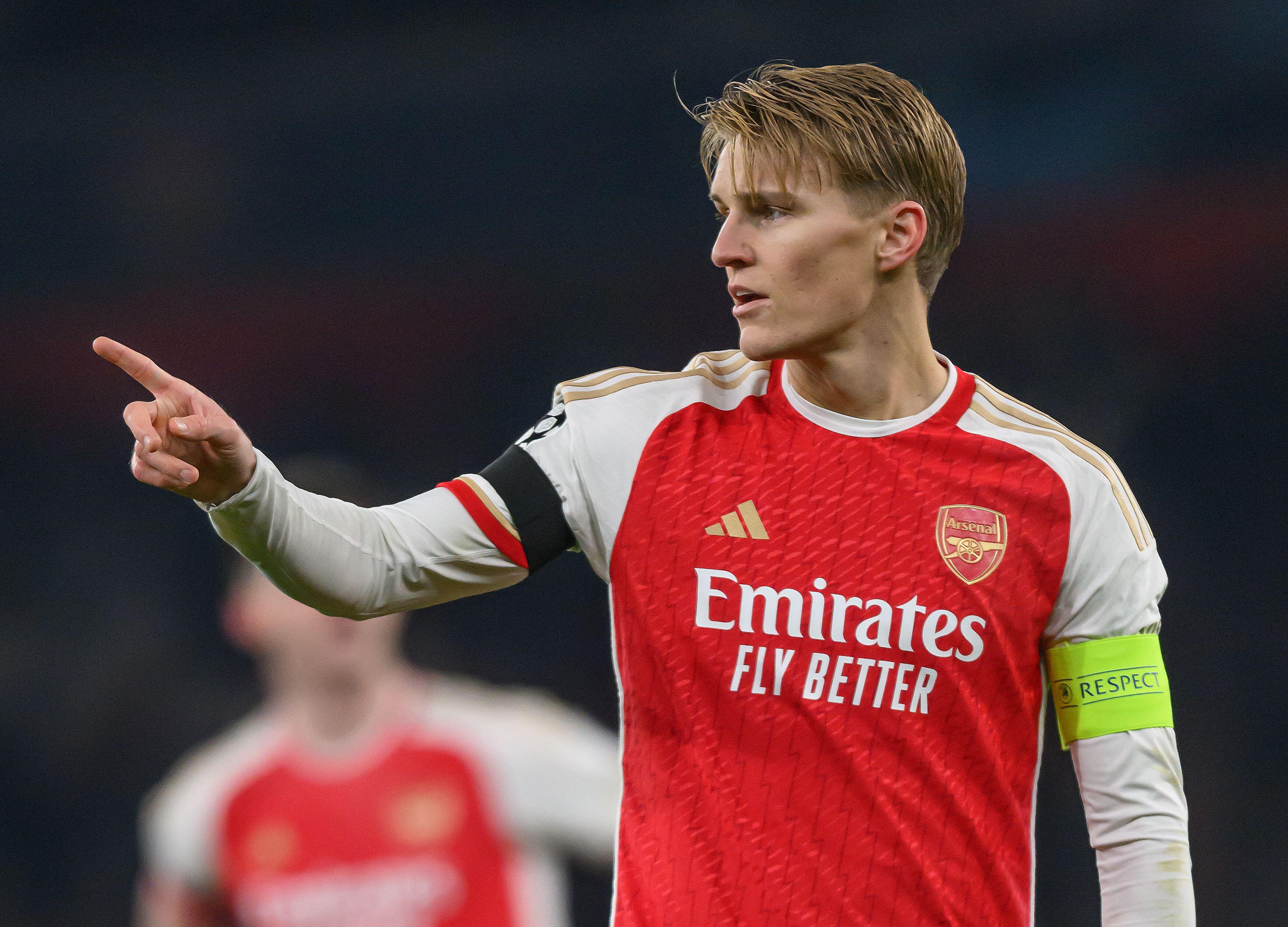Signing for Arsenal, coming through with Cole, waking up from a coma and becoming a postman: Thomas English's incredible story
Set to sign for QPR in 2001 after an impressive S.League season with Marine Castle United, the former Arsenal trainee almost died in a freak accident. Now, 17 years on, the 36-year-old shares his tale with FourFourTwo…
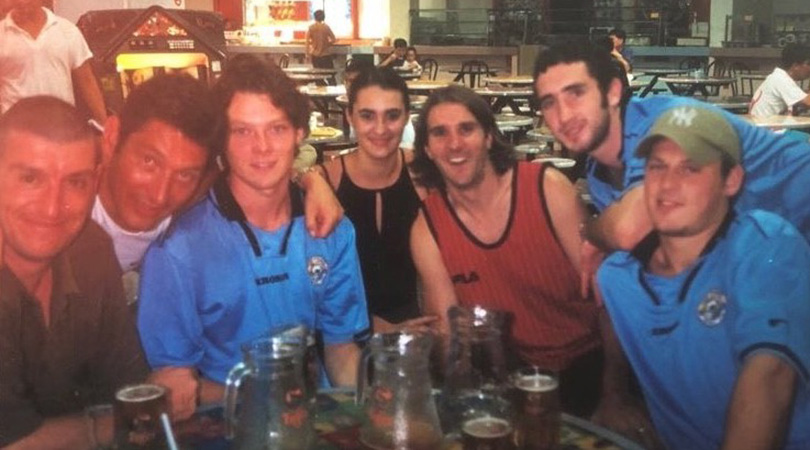
The best features, fun and footballing quizzes, straight to your inbox every week.
You are now subscribed
Your newsletter sign-up was successful
Want to add more newsletters?
Join the club
Get full access to premium articles, exclusive features and a growing list of member rewards.
After 10 days of lying in a coma, Thomas English opened his eyes for the first time - and couldn't recall how he'd ended up in hospital.
With a jaw broken in six places, skull broken in four places, right knee broken in three places and a ruptured posterior cruciate ligament (PCL), English had woken up from a nightmare after a dream holiday in Tenerife, Spain.
My lungs were filled with blood and there’s so much damage going on, so my mum was told to keep her phone on because I’m probably not going to make it through the night
His parents had flown in from London to be by his side, only to be told that they might lose their son on the fourth night after his accident.
“My lungs were filled with blood and there was so much damage going on, so my mum was told to keep her phone on because I probably wasn't going to make it through the night,” English tells FFT. “Obviously she and Dad were in a bad state, but somehow I came through the following morning.”
Coming off a fine 2001 season in Singapore’s S.League, in which he scored 15 goals for perennial strugglers Marine Castle, English was optimistic of resurrecting his career in England and had agreed to sign for QPR after his planned week's holiday in Tenerife.
However, the then-19-year-old wrecked his hopes of a promising career ahead and almost lost his life – all because of a stolen phone.
“On the first night, me and my friend were in a bar… this Spanish boy just took my phone out of my jeans’ pocket and ran off,” English recalls. “Stupidly enough I gave chase and there was this 40-foot wall ahead.
The best features, fun and footballing quizzes, straight to your inbox every week.
“I just thought ‘if I jump it, I will catch him at the corner’. I wasn’t looking straight and didn’t see there was a car park straight down, so I fell right on the tarmac. Just like that, I lost my phone and my career!”
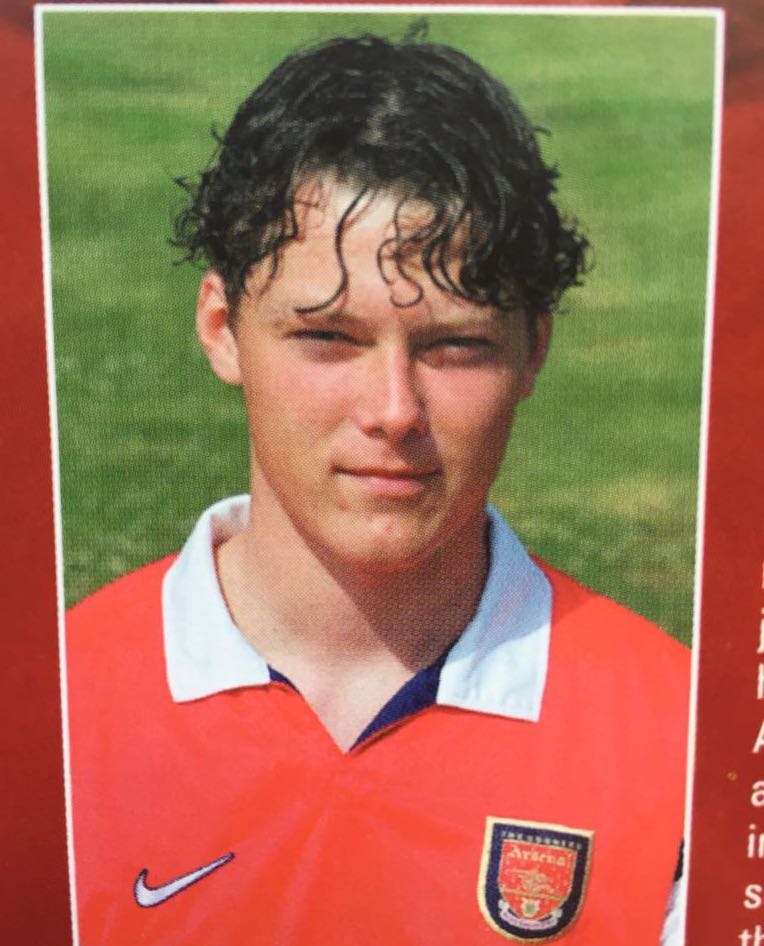
Luckily enough, English’s friends followed along and discovered the unconscious youngster lying in a pool of blood. They managed to locate two policemen 30 yards away, who assisted in calling an ambulance. English soon slipped into a coma.
His parents were notified and reached Tenerife within 12 hours of the accident, but they could only visit their son at two specific time slots a day – 10-10.30am and 5-5.30pm – due to the severity of the accident.
I was told that every time they went in to see me, my heartbeat went up and I'd have a tear running down my face
“I was told that every time they went in to see me, my heartbeat went up and I'd have a tear running down my face. So they were convinced that I knew something, although I couldn’t remember,” he said.
English survived the almighty scare on the fourth night and eventually regained consciousness six days later. An air ambulance was then arranged to send him and his parents back to England, and he spent another five weeks in a hospital in Romford before being discharged.
He was lucky to be alive. But his professional footballing career looked dead and buried.
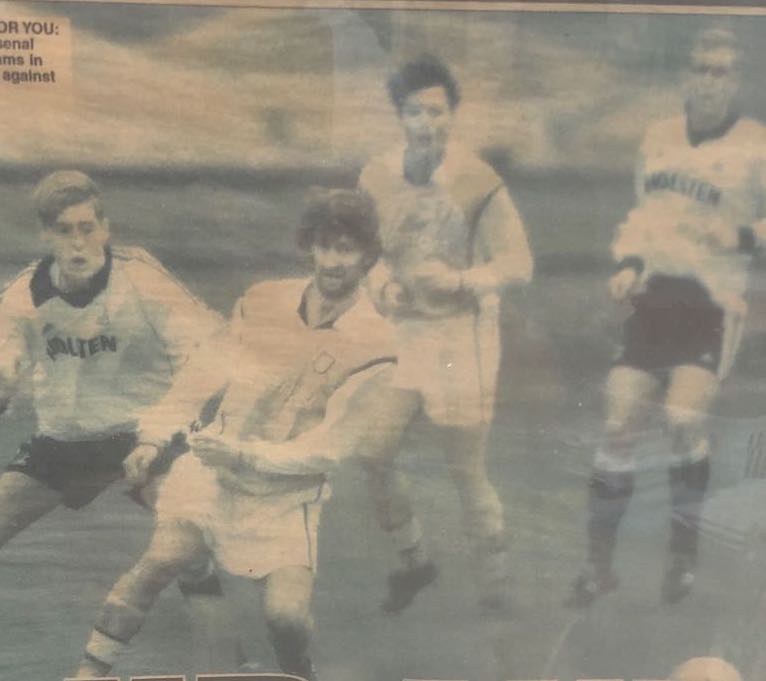
“I had the best knee surgeon in David Dandy, who treated (Paul) Gascoigne and (Alan) Shearer. He thought that I could have gotten back to playing football within four months if I'd not done the ligament damage to my knees,” English shared.
“Nonetheless, he tried to reconstruct my knee in the best way he could.”
NEXT: Trying to come back from the brink
But English was desperate to get his career back on track and tried his luck with multiple clubs, including attempting to return to Singapore with Sengkang Marine (formerly Marine Castle) – but he was met with one rejection after another.
“Every doctor who examined my knee didn’t want to take a risk. I was told I might be able to play 500 games, but I also might play just one game – that’s how unstable my knee was,” English shared.
We agreed on the terms of the contract but the doctor in Singapore failed me. He said it was too much of a risk and too soon to play after my accident
“After failing a medical at Colchester United, I came back to Singapore in the pre-season of 2003 because my old coach Trevor Morgan thought I could still play.
“We agreed on the terms of the contract but the doctor in Singapore failed me. He said it was too much of a risk and too soon to play after my accident.
“Then I went to Perth Glory because Alan Vest (who also coached him at Marine Castle) asked me to come... but I failed the medical. He then got me in contact with Sarawak in Malaysia, but I failed the medical – again. I went to Da Nang in Vietnam but didn't even get to the medical stage because I didn’t really like it there."
English went back to England for the 2003/04 season to try out for Conference outfits Barnet and Stevenage, but his knee simply couldn't cope with the rigours and demands at that level.
Thus, English had to settle for non-league football with Hendon in 2004 and started to work as a postman on the advice of his father and former Coventry striker, Tommy English.
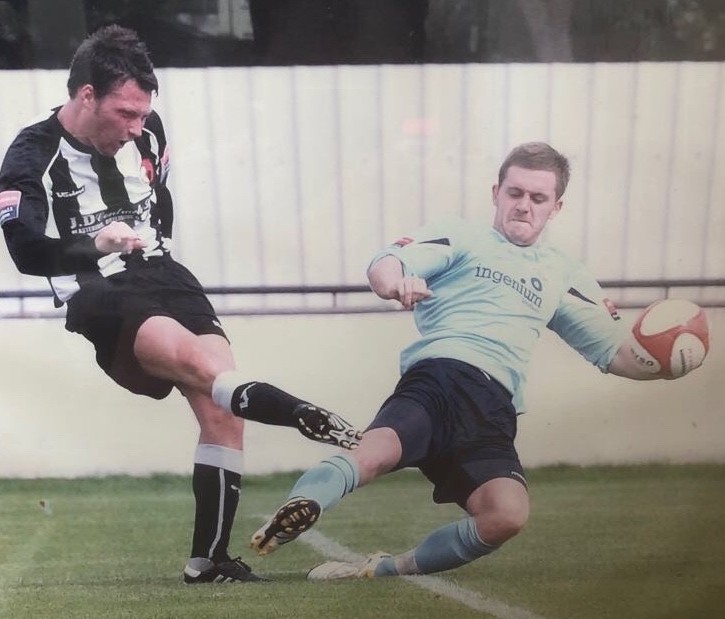
“I still wanted to play football, you know? But my dad got me a job at the post and told me to try for a couple of weeks,” he recalled. “It was supposed to be something temporary, but I've ended up doing that for 14 years now.
“So I managed to earn a few quid as a postman while playing. I was pretty big at non-league level, and I was earning a decent income with around £300 per week – which wasn’t too bad for a part-timer.”
English signed on professional terms with Arsenal in 1998
English then played for a number of other non-league sides before finally hanging up his boots at the age of 29. At that point he was forced to go under the knife for a seventh time in 10 years after rupturing his PCL innocuously in the first minute of a league game for Heybridge Swifts against Canvey Island in the 2010/11 season.
It was a sad end for English, who'd looked destined for much better from a young age.
After starting out at eight years old with Norwich, he was on the books of Liverpool at 14 and Nottingham Forest at 15 before signing for Arsenal on YTS (Youth Training Scheme) terms aged 16.
He then signed professional terms with the Gunners a year later in 1998 and played in six friendlies, but never managed to make an official appearance for Arsene Wenger’s side.
The technically gifted forward also represented England from U12 to U16 level alongside the likes of Jermain Defoe, Joe Cole and Shaun Wright-Phillips.
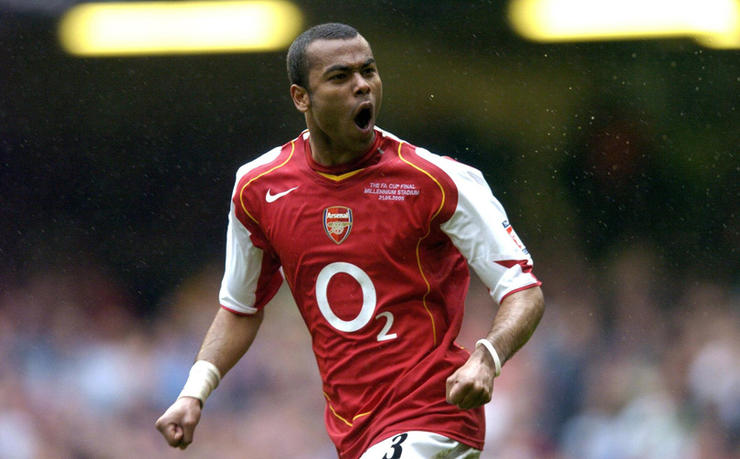
“The thing at Arsenal is that we had 80 professionals but only 11 can play at the same time,” he explained. “We had a strong squad at that time, winning the Double in 1998. The team needed success, so youth players don't get many chances. I had to accept that when I signed for such a big club.
“For instance, we just went out to sign (Thierry) Henry when we needed a striker and didn't look at anyone within. My youth team-mate Ashley Cole was lucky in that sense because we had no left-back at that time.
“(Nigel) Winterburn had just gone to West Ham and there was a problem with Silvinho’s passport. Ashley got thrown in and 10 games later, he became an England international. In life you just need opportunities.
“But it was still great to train with players like Patrick Vieira, Tony Adams, Ray Parlour, (Freddie) Ljungberg and (Dennis) Bergkamp.”
Making no headway at Arsenal, English knew he had to look elsewhere for playing opportunities and was supposed to sign for QPR. However, the Hoops couldn't afford a transfer fee and he soon found himself on a plane to Singapore for his next adventure.
“I was told that the QPR move wasn’t going to happen because they could only afford 10k, but Arsenal wanted 100k,” he revealed. “So Simon Barker, who was connected to QPR and working as an agent for the PFA, got me an opportunity with Marine Castle because he knew their chairman David Rowe.
I jumped at it; I didn’t know anything about Singapore, but I just wanted to play first-team football
“I jumped at it; I didn’t know anything about Singapore, but I just wanted to play first-team football. The thought of living in another country on my own appealed to me, instead of being stuck in London in the underground and getting nowhere at 19 years old.”
At first, English struggled to acclimatise to Singapore’s heat and humidity, and took seven games to open his Dolphins account – with a brace in a 3-2 defeat to Balestier Central in April.
Getting that monkey off his back did him a world of good, though, and he started to hit the net on a more regular basis – scoring in five successive matches over August and gradually became a fans’ favourite at the Hougang Stadium.
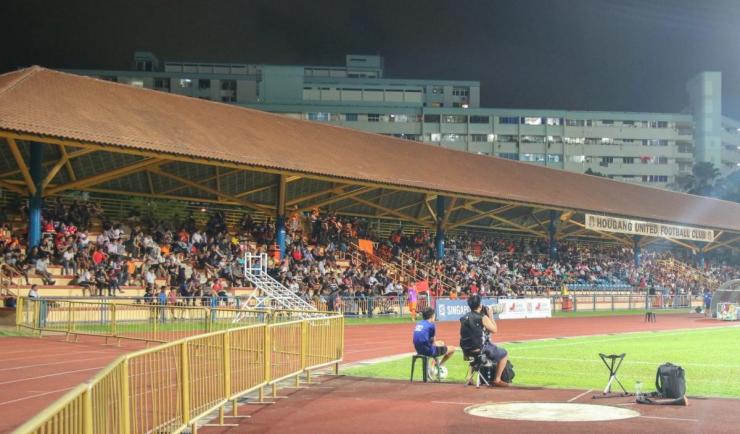
English particularly thrilled with his expertise from set-pieces, and one of his few specials came in salvaging a last-minute 1-1 draw away against Woodlands Wellington. That proved to be an important point as Marine Castle eventually finished three points clear of the bottom-placed Rams.
“The standard of football wasn’t what I thought to be, but I truly enjoyed my football here and it gave me a big platform for my career,” English reminisces. “I wasn’t so much an athlete, I was more of a technical player and I always scored free kicks (in youth days).
Our goalkeeper Amos Boon used to bring us to many places and I also remember players like Ashrin Shariff and Rosman (Sulaiman)
“I loved everything about the country compared to London, where the traffic and amount of rubbish were crazy; I loved the cleanliness, the culture and the food – I never liked spicy food until I came to Singapore!
"My team-mates were lovely. Our goalkeeper Amos Boon used to bring us to many places and I also remember players like Ashrin Shariff and Rosman (Sulaiman).
“The three foreign boys – me, Michael Lomax and Barrie Keeling – got on great and we’re still in contact till now. We have a little WhatsApp group named 'Singapore days of our lives'!”
English's impressive performances didn't go unnoticed and Home United were interested in signing him for the following season.
However, he had decided to head home and would have penned a deal with QPR were it not for that terrifying fall in Tenerife - Hoops manager Ian Holloway had decided to come back in for English after resolving the club's cashflow problems.
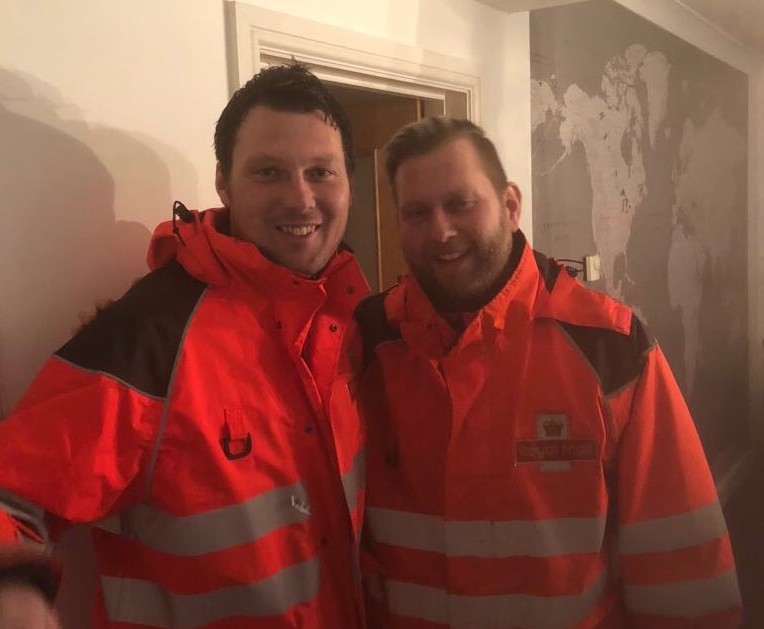
After having his knee reconstructed for a final time in 2011, English found solace in another sport he enjoys before his night shifts as a postman.
“I took up golf as recreation and became rather good at it,” he shared. “The thought of becoming a professional crossed my mind but I decided to stay at amateur level.
Being a postman wasn’t what I wanted as a career, but I've got to accept it
“Being a postman wasn’t what I wanted as a career, but I've got to accept it. Basically, my job is sorting out for Royal Mail. I do only night shifts indoors because of my knee condition; they don't want me to go out and do deliveries, which involves walking long distances.”
Now happily residing in Colchester with his wife, 13-year-old son and nine-year-old daughter, English still goes to the occasional game and was at Wembley recently to watch his beloved Arsenal lose to Manchester City in the League Cup final.
“I still get tickets from Arsenal; I used to get them from the head of youth development Liam Brady, but his secretary Sue has continued to give me after he left the club,” English says.
“The club have always said ‘if you ever need help, we will do for you’. It’s good that I’m still remembered after all these years and I’ve been an Arsenal fan 'til now."
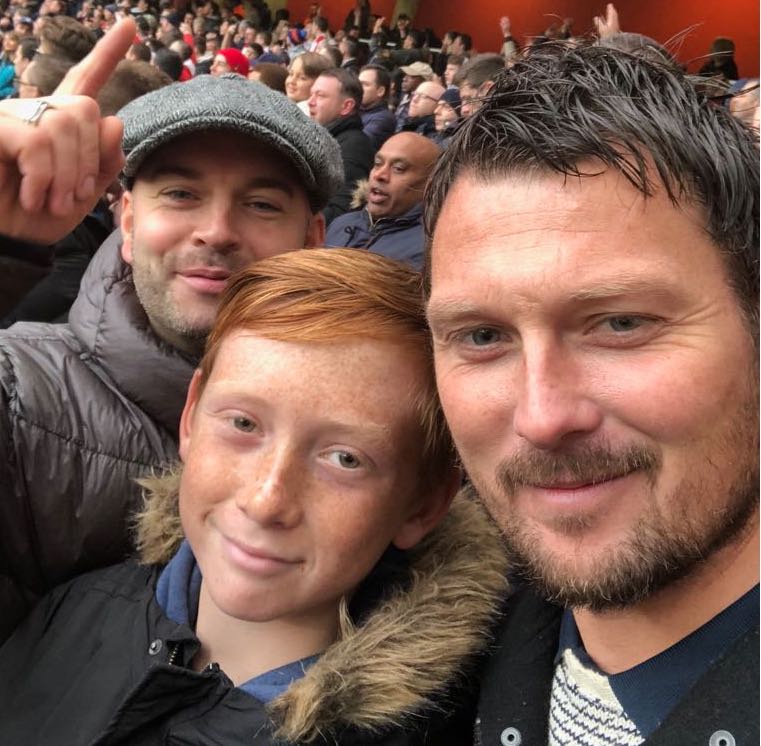
Seventeen years on, English can only look back at what could have been on life without a wrecked right knee.
“If I could turn back time, I wouldn't have given chase. I lost my whole football career over a phone,” he laments. “I wouldn’t say I would have made it in the Premier League, but I could have at least made a decent career back in England.”
With his childhood dreams shattered before that unfortunate accident, English admits he even fell into depression at one point. Thankfully, he has since come to terms with reality and is happy with where he is in life.
“It could have been worse; if anything had happened to my back, I could have been in a wheelchair forever. I can do anything except for playing football,” he reflects.
“I was gutted because I lost everything. I saw my friend Ashley Cole going one way while I went the other. But when my first child was born a couple of years later, I thought to myself ‘I am so lucky just to be alive’."
Photos: Supplied unless otherwise stated
 Join The Club
Join The Club










